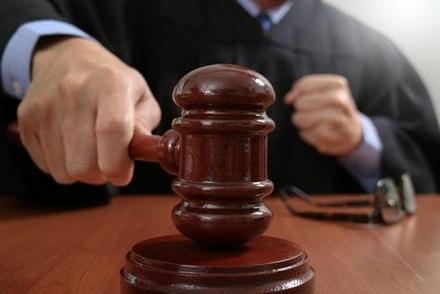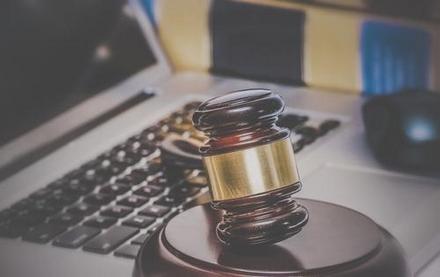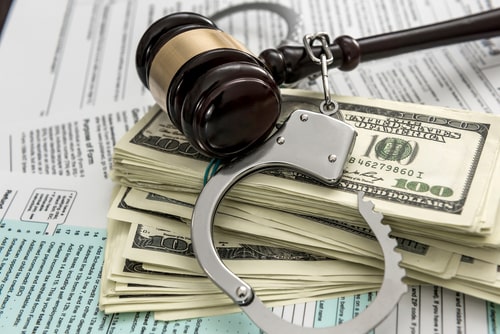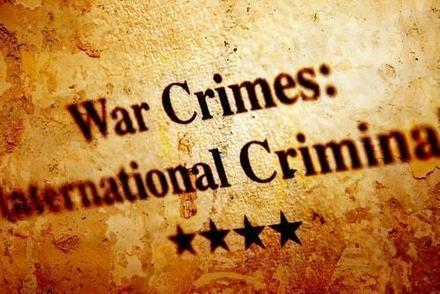TELEPHONES ANSWERED 24 HOURS A DAY
Recent Blog Posts
Defenses to Conspiracy to Commit Murder
 The news of Joaquin Guzman, better known as ‘El Chapo,’ starting his life sentence this week made news around the country, and around the globe. The sentence came after Guzman was found guilty of a number of crimes, including conspiracy to commit murder. While a jury found Guzman guilty and he was largely known as a very violent criminal, not everyone accused of conspiracy to commit murder actually committed the act. Fortunately for these individuals, there are defenses available.
What Is Conspiracy to Commit Murder?
The federal crime of conspiring to commit murder is covered under 18 U.S. Code Section 1117. Under this code, it is unlawful to conspire, or plan, to kill internationally protected persons, law enforcement or government officials, or any other person.
It is important to understand that the act of murder does not have to happen in order for the prosecution to press conspiracy charges. The government must simply show that a person had plans to kill another person. If the murder did take place, a person will likely face both conspiracy charges and murder charges.
In a conspiracy case, the prosecution must prove the intent of the defendant, which is very difficult to do. If a person is unaware they are part of a conspiracy, they cannot be convicted of a crime. However, a person also does not need to be made aware of all the elements of the crime, either. As long as they know they are part of a conspiracy, they can face charges.
For those convicted, conspiracy to commit murder has very harsh penalties. There is no minimum sentence, and a person could spend the rest of their life in federal prison. Due to this, it is important any individual charged speak to a federal criminal defense attorney that can help.
Defenses to Conspiracy to Commit Murder
One of the most effective defenses in conspiracy to commit murder cases is abandonment or withdrawal. If the defendant can show that they communicated to their co-conspirators, in no uncertain terms, that they no longer wished to play a role in the conspired crime, this can be used as a defense. When using this argument, the defendant must also show that they took positive action to remove themselves from the conspiracy. They must also show they no longer communicate with their co-conspirators. This withdrawal must occur prior to the conspired act taking place.
Like all criminal cases, mistaken identity can also be used as a defense in conspiracy to commit murder cases. Sometimes, law enforcement and the prosecution simply get it wrong. When they do, and they accuse the wrong person of conspiracy to commit murder, it can be used as a defense to conspiracy to commit murder.
When law enforcement has persuaded someone to partake in conspiracy to commit murder, this is also a useful defense. To use it, the defendant must show they had no intention of committing a crime before communication with a law enforcement officer. They must also show the conspiracy was suggested by the officer first, and that the officer persuaded the defendant to conspire to commit the act.
Charged with a Federal Crime? Call an Illinois Federal Criminal Defense Attorney
The news of Joaquin Guzman, better known as ‘El Chapo,’ starting his life sentence this week made news around the country, and around the globe. The sentence came after Guzman was found guilty of a number of crimes, including conspiracy to commit murder. While a jury found Guzman guilty and he was largely known as a very violent criminal, not everyone accused of conspiracy to commit murder actually committed the act. Fortunately for these individuals, there are defenses available.
What Is Conspiracy to Commit Murder?
The federal crime of conspiring to commit murder is covered under 18 U.S. Code Section 1117. Under this code, it is unlawful to conspire, or plan, to kill internationally protected persons, law enforcement or government officials, or any other person.
It is important to understand that the act of murder does not have to happen in order for the prosecution to press conspiracy charges. The government must simply show that a person had plans to kill another person. If the murder did take place, a person will likely face both conspiracy charges and murder charges.
In a conspiracy case, the prosecution must prove the intent of the defendant, which is very difficult to do. If a person is unaware they are part of a conspiracy, they cannot be convicted of a crime. However, a person also does not need to be made aware of all the elements of the crime, either. As long as they know they are part of a conspiracy, they can face charges.
For those convicted, conspiracy to commit murder has very harsh penalties. There is no minimum sentence, and a person could spend the rest of their life in federal prison. Due to this, it is important any individual charged speak to a federal criminal defense attorney that can help.
Defenses to Conspiracy to Commit Murder
One of the most effective defenses in conspiracy to commit murder cases is abandonment or withdrawal. If the defendant can show that they communicated to their co-conspirators, in no uncertain terms, that they no longer wished to play a role in the conspired crime, this can be used as a defense. When using this argument, the defendant must also show that they took positive action to remove themselves from the conspiracy. They must also show they no longer communicate with their co-conspirators. This withdrawal must occur prior to the conspired act taking place.
Like all criminal cases, mistaken identity can also be used as a defense in conspiracy to commit murder cases. Sometimes, law enforcement and the prosecution simply get it wrong. When they do, and they accuse the wrong person of conspiracy to commit murder, it can be used as a defense to conspiracy to commit murder.
When law enforcement has persuaded someone to partake in conspiracy to commit murder, this is also a useful defense. To use it, the defendant must show they had no intention of committing a crime before communication with a law enforcement officer. They must also show the conspiracy was suggested by the officer first, and that the officer persuaded the defendant to conspire to commit the act.
Charged with a Federal Crime? Call an Illinois Federal Criminal Defense Attorney
Like all federal crimes, there are valid and effective defenses to the crime conspiracy to commit murder. However, no one should ever try to argue them on their own. A skilled Chicago federal criminal defense lawyer can give defendants their best chance of success in court. If you have been charged with a federal crime, call the Law Offices of Hal M. Garfinkel at 312-629-0669 today for your free consultation. We are dedicated to helping those accused of crimes retain their freedom, and we want to help with your case, too.
Product Tampering Is a Federal Crime
 Earlier this month, a young woman was filmed licking a tub of ice cream in a Lufkin, Texas Walmart before returning it to the freezer. Law enforcement officials were notified, and the girl has now been identified as a 17-year-old girl. Due to her age, she has been transferred to the juvenile justice system. That is a good thing. If tried as an adult, she would have faced federal charges of tampering with a consumer product. That is a charge that has a potential sentence of 20 years in federal prison.
Earlier this month, a young woman was filmed licking a tub of ice cream in a Lufkin, Texas Walmart before returning it to the freezer. Law enforcement officials were notified, and the girl has now been identified as a 17-year-old girl. Due to her age, she has been transferred to the juvenile justice system. That is a good thing. If tried as an adult, she would have faced federal charges of tampering with a consumer product. That is a charge that has a potential sentence of 20 years in federal prison.
Tampering with a Consumer Product
Many people do not realize that tampering with a consumer product is against the law. It is certainly not a federal crime that regularly makes the news. However, while some may think tampering with a product is an innocent prank, federal agencies see it quite differently.
Federal law prohibits tampering with a product, or even trying to tamper with a product. Even tampering with packaging or labels, or altering the written information on a consumer product, is considered illegal behavior. The law does not consider tampering with a consumer product to be against the law if the product has already been purchased and brought to someone’s home.
How Do the Federal Sentencing Guidelines Work?
 If you have been charged with a federal crime such as healthcare fraud or money laundering, you will need to understand how the Federal Sentencing Guidelines work. These guidelines are just that - they are guidelines to help judges decide on appropriate sentences. They are not hard and fast rules.
If you have been charged with a federal crime such as healthcare fraud or money laundering, you will need to understand how the Federal Sentencing Guidelines work. These guidelines are just that - they are guidelines to help judges decide on appropriate sentences. They are not hard and fast rules.
The Federal Sentencing Guidelines are released in a publication every year. Although judges are not required to follow these guidelines, they are required to at least consider them. If a federal judge decides to deviate from these guidelines, they must provide a clear and full explanation of their reason for doing so. Below is a brief explanation of how these guidelines work.
What Are the Federal Sentencing Guidelines?
Under the Federal Sentencing Guidelines, individuals convicted of a federal crime are assigned to one of 43 offense levels. The level they are assigned will depend on the severity of the crime. Offenses considered to be on a higher level have more serious consequences. For example, money laundering may have an offense level of 20, while first-degree murder will have an offense level of 43.
What to Do When Facing a Search Warrant
 Under the Fourth Amendment, investigators must have a search warrant in order to search your home. When a judge gives them this warrant, you have no choice but to allow them into your home to search within the provisions of the warrant. The things that you do and do not do during a search can have a significant impact on your case. The very first thing you should do is get a lawyer. A federal criminal attorney will ensure your rights are upheld and help you prepare for anything that might come next.
Under the Fourth Amendment, investigators must have a search warrant in order to search your home. When a judge gives them this warrant, you have no choice but to allow them into your home to search within the provisions of the warrant. The things that you do and do not do during a search can have a significant impact on your case. The very first thing you should do is get a lawyer. A federal criminal attorney will ensure your rights are upheld and help you prepare for anything that might come next.
What a Search Warrant Means
Many people do not know what a search warrant means. Does it mean an arrest will follow? What are the investigators looking for?
If investigators are searching your home, they likely suspect you, or someone in your home, of a federal crime. If they needed information on someone else, they usually issue a subpoena to get the information from you.
Difference Between State and Federal Sex Charges
 Recently, singer R. Kelly appeared once again in federal court. This time it was to set a trial date for the 11 sexual abuse charges he is facing. R. Kelly continues to deny all charges against him. The fact that this high-profile case is in federal court has some confused. Are sex charges a state crime? When do they become a federal crime?
Recently, singer R. Kelly appeared once again in federal court. This time it was to set a trial date for the 11 sexual abuse charges he is facing. R. Kelly continues to deny all charges against him. The fact that this high-profile case is in federal court has some confused. Are sex charges a state crime? When do they become a federal crime?
Federal Court vs. State Court
Like other crimes, when a person is charged with a sex crime, they are arrested and the case is tried in the jurisdiction where the crime occurred.
Certain sex crimes are considered both state and federal crimes. The federal courts may hear the case at first, and then move it into the state courts. Likewise, a case may begin in state court and then advance to federal court if it is serious enough, or if new evidence is presented that makes the case appropriate for federal court.
What Crimes Are Considered War Crimes in the United States?
 Earlier this year, President Donald Trump announced that he was considering granting pardons to a handful of individuals accused of war crimes. While he has since stepped back from the plan to pardon, it had many questioning what constitutes a war crime in the United States? Are war crimes punished internationally?
Earlier this year, President Donald Trump announced that he was considering granting pardons to a handful of individuals accused of war crimes. While he has since stepped back from the plan to pardon, it had many questioning what constitutes a war crime in the United States? Are war crimes punished internationally?
War Crimes and the International Criminal Court
It is true that there is an International Criminal Court that prosecutes war crimes. However, here in the United States, those accused of committing a war crime are prosecuted domestically. That means that defendants are tried and, if convicted, sentenced in the American federal court system.
The federal courts have adopted the Geneva Conventions. This means that although the trial will take place in America, it will follow international law.
What Are War Crimes?
War is awful, and many unimaginable acts occur during battle. The Geneva Conventions though, recognize that war does not grant anyone serving the right to act in any manner they choose. There is also a global understanding that many times innocent people are caught in the middle, but they still deserve protection from the atrocities of war. The law also recognizes that just because one may be considered an enemy in war, that enemy still has the right to be treated correctly.
Can the Government Seize Assets in a Healthcare Fraud Case?
 The federal government has investigated cases of healthcare fraud since the inception of programs such as Medicare and Medicaid. Historically though, they tended to focus on larger fraud schemes, typically occurring within huge corporations. Of course, the government is still focused on these investigations, but there has been a shift in recent years. The number of investigations into smaller community-based healthcare businesses has been increasing. Allegations range from billing errors to unlawful referral fees and more.
The federal government has investigated cases of healthcare fraud since the inception of programs such as Medicare and Medicaid. Historically though, they tended to focus on larger fraud schemes, typically occurring within huge corporations. Of course, the government is still focused on these investigations, but there has been a shift in recent years. The number of investigations into smaller community-based healthcare businesses has been increasing. Allegations range from billing errors to unlawful referral fees and more.
The consequences of these investigations are devastating for the owners of these businesses just trying to help their community and make an honest living. In some cases, their assets are even seized, which is often enough to prevent them from conducting business, or even paying their personal expenses.
Asset Forfeitures Under the United States Code
According to 28 U.S.C. Section 1355, the federal government can seize assets during an investigation. This tool is not available to them in every investigation they conduct. However, cases involving doctors, pharmacists, company owners, and board members are often targeted for asset seizure.
Why Federal Criminal Cases Need a Federal Attorney
 When charged with a federal crime such as healthcare fraud, you may understand that you need an attorney, but you may not know which type of attorney you need. Federal crimes are very different than state crimes. The case will be heard in a different court, by different judges, and the courts will have different schedules. These are important differences that will affect the outcome of your case, even if you do not yet realize it. A federal criminal defense attorney will understand the federal court system, and will not let the different procedures hurt your case.
When charged with a federal crime such as healthcare fraud, you may understand that you need an attorney, but you may not know which type of attorney you need. Federal crimes are very different than state crimes. The case will be heard in a different court, by different judges, and the courts will have different schedules. These are important differences that will affect the outcome of your case, even if you do not yet realize it. A federal criminal defense attorney will understand the federal court system, and will not let the different procedures hurt your case.
Federal Laws Differ from State Laws
Of course, this is the most obvious difference, but it is an important one. Criminal defense attorneys are typically well-versed in the laws of their state and know how to defend against state crimes. Typically, they are not as familiar with federal law. For example, embezzlement in Illinois can be charged as either a state crime or a federal crime. If a criminal defense attorney prepares a defense according to state laws, it will have a negative impact on your case.
The Problems with Telemedicine and How Doctors Can Protect Themselves
 It was in April of 2019 when the Department of Justice indicted 24 people, many of them doctors, in a healthcare fraud scheme. These indictments largely had to do with the practice of telemedicine, a practice that if not done carefully, can cost doctors their license, and possibly even their freedom. So, what is telemedicine? Why do doctors practice it, and what are the risks? Most importantly, how can doctors ensure that they practice telemedicine safely?
What Is Telemedicine?
Telemedicine allows doctors to see patients via a television, typically through a satellite connection, without actually being in the room with the patient. This can help speed along the process of healthcare, as a doctor is simply sitting in a room, typically either at their home or in their office and can see patient after patient without getting bogged down by paperwork and other administrative tasks.
Doctors that practice telemedicine typically start by responding to an ad, usually found online. The telemedicine company will interview the doctor, check their credentials, and ensure they are licensed to practice medicine. Upon approval, the telemedicine company will then offer the doctor work as a 1099 independent contractor. For each consultation, the doctor receives a fee.
Risks with Telemedicine
At first glance, telemedicine seems beneficial for patients and doctors alike. In the eyes of the DOJ though, it could be breaking federal law. The main law in question is the federal Anti-Kickback Statute. This law prohibits doctors from receiving remuneration, which is considered to be anything of value, for referrals or services that are payable by a federal program such as Medicare. When a doctor receives payment for these services, the DOJ may consider it healthcare fraud.
The other risk factor that comes with telemedicine is that generally speaking, doctors are less likely to keep the detailed documentation required when prescribing prescriptions or durable medical equipment (DME). These are two areas federal authorities have been scrutinizing lately, trying to find doctors that are ordering these drugs or equipment when the patient does not actually require them.
The problem for doctors treating patients honestly is that the doctor’s notes play a large part in determining if a service or drug is necessary. When a doctor fails to keep proper documentation simply because they are treating a patient through telemedicine and not right in their office, it can lead to a federal inquiry.
Keep Practicing Telemedicine with the Help of an Illinois Federal Criminal Defense Attorney
Telemedicine is not inherently bad, and just because the DOJ is starting to crack down on it does not mean doctors have to stop practicing. They just need the help of an experienced Chicago federal criminal defense attorney.
It was in April of 2019 when the Department of Justice indicted 24 people, many of them doctors, in a healthcare fraud scheme. These indictments largely had to do with the practice of telemedicine, a practice that if not done carefully, can cost doctors their license, and possibly even their freedom. So, what is telemedicine? Why do doctors practice it, and what are the risks? Most importantly, how can doctors ensure that they practice telemedicine safely?
What Is Telemedicine?
Telemedicine allows doctors to see patients via a television, typically through a satellite connection, without actually being in the room with the patient. This can help speed along the process of healthcare, as a doctor is simply sitting in a room, typically either at their home or in their office and can see patient after patient without getting bogged down by paperwork and other administrative tasks.
Doctors that practice telemedicine typically start by responding to an ad, usually found online. The telemedicine company will interview the doctor, check their credentials, and ensure they are licensed to practice medicine. Upon approval, the telemedicine company will then offer the doctor work as a 1099 independent contractor. For each consultation, the doctor receives a fee.
Risks with Telemedicine
At first glance, telemedicine seems beneficial for patients and doctors alike. In the eyes of the DOJ though, it could be breaking federal law. The main law in question is the federal Anti-Kickback Statute. This law prohibits doctors from receiving remuneration, which is considered to be anything of value, for referrals or services that are payable by a federal program such as Medicare. When a doctor receives payment for these services, the DOJ may consider it healthcare fraud.
The other risk factor that comes with telemedicine is that generally speaking, doctors are less likely to keep the detailed documentation required when prescribing prescriptions or durable medical equipment (DME). These are two areas federal authorities have been scrutinizing lately, trying to find doctors that are ordering these drugs or equipment when the patient does not actually require them.
The problem for doctors treating patients honestly is that the doctor’s notes play a large part in determining if a service or drug is necessary. When a doctor fails to keep proper documentation simply because they are treating a patient through telemedicine and not right in their office, it can lead to a federal inquiry.
Keep Practicing Telemedicine with the Help of an Illinois Federal Criminal Defense Attorney
Telemedicine is not inherently bad, and just because the DOJ is starting to crack down on it does not mean doctors have to stop practicing. They just need the help of an experienced Chicago federal criminal defense attorney.
At the Law Offices of Hal M. Garfinkel, our experienced Chicago federal criminal defense attorneys represent doctors and other clients in health care fraud investigations, and we can represent you too, even before an investigation begins. We will help you become proactive about Medicare compliance and ensure you maintain adequate documentation to protect you from any charges. Additionally, we can also help you structure financial relationships to ensure you are complying with the Anti-Kickback Statute. We want to do all of this for you and more so call us today at 312-629-0669 for your free consultation.
How to Tell if You Are Under Federal Investigation
 If you are under federal investigation, you will want to speak to an attorney right away. Having an attorney by your side can prevent you from saying something that will incriminate yourself, and can ensure your rights are protected throughout the entire process.
If you are under federal investigation, you will want to speak to an attorney right away. Having an attorney by your side can prevent you from saying something that will incriminate yourself, and can ensure your rights are protected throughout the entire process.
The problem is that many people do not realize they are under investigation until they receive a federal indictment. At that point, the prosecution has already been hard at work building a case against you, and you haven’t had a chance yet to create a defense. To help with this issue, there are some telltale signs that you’re under federal investigation. If you notice any of them, it is best to call a lawyer as soon as possible.
Someone Tells You
The chances are that during a federal investigation, a government agent will speak to a third party. If you get lucky, one of those people may tell you that federal agents were asking about you. If you hear this, do not take it lightly or try to simply hide from the charges. It does not work. You need an experienced federal criminal defense attorney as soon as possible.




